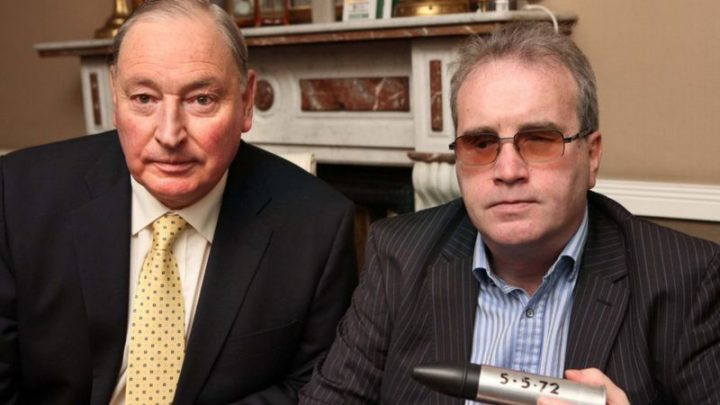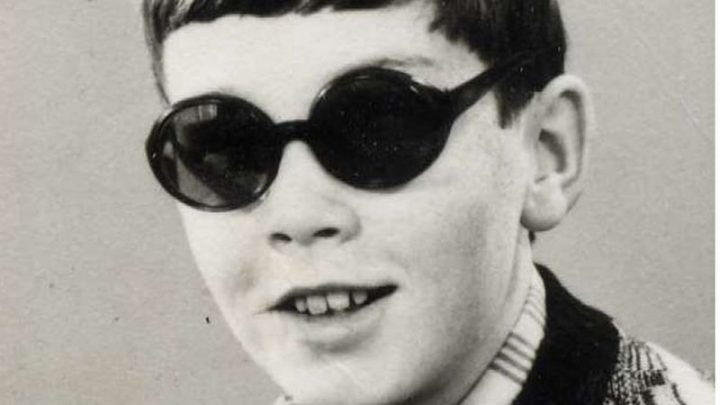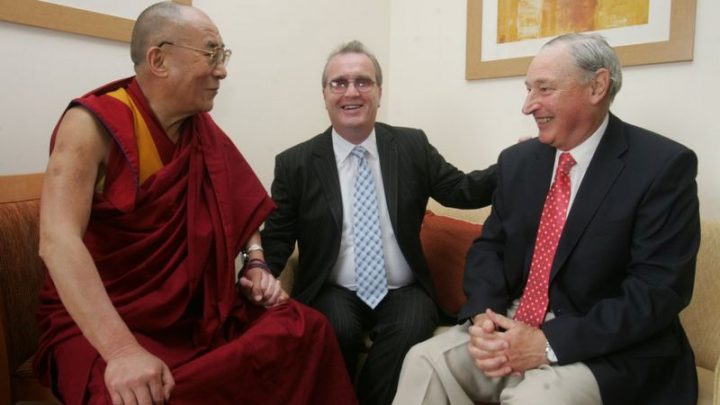
Charles Innes and Richard Moore have maintained a friendship since first meeting in 2007.
Richard Moore lost his sight at the age of 10 when he was hit by a rubber bullet in Derry in 1972.
In 2007 he met the soldier who shot him.
He has since maintained a friendship with Charles Inness whom he has come to forgive.
But until recently, Mr Moore said Mr Inness had been unable to tell him he was sorry.
“When it came it was really moving. I didn’t need it, I didn’t ask for it, but when it came it was really, really nice. It really was,” Mr Moore said.
He said Mr Inness, now aged 78, had been of the opinion “that when you say ‘sorry’, it means that you didn’t mean to fire the bullet”.
“He’d say: ‘I meant to fire the bullet, but I never meant to cause the damage.’ He always said if he’d known what was going to happen to me, he wouldn’t have fired it.”
 Mr Moore said while to him that seemed like “semantics”, the more the two men got to know each other “the more he felt the former soldier was sorry”.
Mr Moore said while to him that seemed like “semantics”, the more the two men got to know each other “the more he felt the former soldier was sorry”.
“And then eventually many years after we first met, we were talking about the ‘sorry’ word one night and he said to me, ‘Richard, I am sorry’,” Mr Moore added.
Now the director of the Derry-based charity Children in Crossfire, Mr Moore lost one eye and the sight in the other when he was struck in the face with the rubber bullet.
His charity was recently awarded a £250,000 UK government grant through the Department For International Development’s UK Aid Direct scheme to help provide 100,000 children in the Dodoma region of Tanzania with an education.
“It is important we don’t let the ball drop and we continue to make sure children are not disadvantaged. Education is a ladder out of poverty for these kids,” he said.

The Dalai Lama is a patron of Mr Moore’s Children in Crossfire charity
“Through supporting projects like this, over the past year the UK government has helped to build more than 3,000 primary classrooms in Tanzania, helped train almost 54,000 teachers in over 5,000 schools, and set up almost 1,900 community pre-schools.”
Tags:




